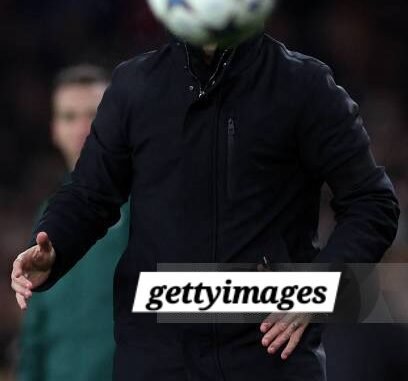
In a shocking scandal that has rocked the heart of English football, several non-league managers are under intense scrutiny amid growing allegations of match-fixing. The accusations, which have sent shockwaves through the tight-knit world of lower-tier football, threaten to tarnish the reputations of several clubs and individuals, as investigations intensify across multiple leagues.
Non-league football, often regarded as the bedrock of grassroots football in England, has long been celebrated for its community-driven ethos, where players, fans, and clubs exist in a close, familial environment. However, the latest revelations surrounding potential match-fixing activities have cast a dark cloud over this cherished level of the game, and have raised serious concerns about the integrity of competition at all levels of the sport.
### The Emergence of the Allegations
The match-fixing scandal first came to light when several unusual betting patterns were flagged during non-league matches over the past two seasons. Betting companies, monitoring games in England’s lower leagues, noticed irregular spikes in wagers on specific outcomes in a number of fixtures that, on the surface, appeared to be insignificant. However, the patterns of large bets on seemingly random occurrences, such as the number of yellow cards or the precise timing of goals, raised suspicions.
These suspicious betting patterns prompted an investigation by both the Football Association (FA) and independent integrity units, who have been working with law enforcement agencies and betting companies to uncover the extent of the alleged corruption. While initially treated with skepticism by some, the mounting evidence has made it clear that match-fixing might have infiltrated non-league football more deeply than previously thought.
As a result, multiple non-league managers have come under fire, with accusations that they may have either been complicit in or actively involved in manipulating match outcomes. The alleged involvement of certain players and club officials in these betting activities has only deepened the crisis, leading to widespread calls for swift and decisive action from footballing authorities.
### The Role of Financial Pressures
One of the driving forces behind these allegations is the financial hardship faced by many non-league clubs and their staff. Unlike the Premier League, where multi-million-pound salaries and vast sponsorship deals dominate the landscape, non-league football exists in a world of financial struggle. Many clubs in the lower tiers of English football rely on volunteer staff, small sponsorship deals, and matchday ticket sales to survive.

The financial strain, exacerbated by the COVID-19 pandemic, has pushed some non-league clubs and managers to the brink of collapse. With revenue streams drying up, some managers, players, and club officials may have found themselves tempted by the lure of match-fixing syndicates. For those involved, the potential payouts from agreeing to fix specific outcomes—such as conceding a late goal or deliberately losing a match—could provide much-needed financial relief.
While this does not justify the alleged behavior, it sheds light on the difficult circumstances that many non-league figures operate under. Players and managers in the lower leagues typically earn a fraction of what their professional counterparts make, and the temptation to engage in illicit activities, particularly when approached by shadowy figures in the gambling industry, becomes harder to resist.
### The Impact on Non-League Football
The potential fallout from these allegations is severe. Non-league football prides itself on its authenticity, community spirit, and love of the game. Fans, who often know players and staff personally, are fiercely loyal to their local clubs. The idea that match-fixing could tarnish the integrity of their beloved teams is a bitter pill to swallow.
For many supporters, non-league football is a refuge from the commercialism of the upper echelons of the sport. It’s a place where hard work, grit, and passion are rewarded—where the spectacle isn’t just about money and fame, but about the purity of competition. If match-fixing is proven to have infiltrated this world, the damage to non-league football’s reputation could be long-lasting.
Furthermore, the financial impact could be devastating. Already operating on razor-thin margins, non-league clubs may struggle to attract sponsorship and investment if potential partners become wary of being associated with a tarnished product. Lower attendances, reduced sponsorship deals, and the possibility of fines or sanctions could push some clubs to the point of closure.
### Investigations and Legal Proceedings
The Football Association (FA), working alongside law enforcement agencies and global betting watchdogs, has vowed to leave no stone unturned in its investigation into match-fixing in non-league football. Several managers have already been suspended pending further inquiry, and multiple players and officials have been called in for questioning.
The FA’s integrity team has been combing through match footage, reviewing betting patterns, and working closely with clubs to gather evidence. Initial reports suggest that certain games in leagues such as the National League, Isthmian League, and Northern Premier League are under the microscope, though officials have stressed that no one will be assumed guilty without due process.
One anonymous whistleblower, who played a key role in bringing the allegations to light, revealed the extent of the pressure faced by some individuals in non-league football. “There were games where it was obvious something wasn’t right. Players who you know are reliable were making strange mistakes, and there were whispers in the dressing room about people being approached by betting syndicates. It’s not just managers—players have been caught up in it, too. Some of them are desperate, trying to make ends meet.”
Legal proceedings are expected to follow, and if proven guilty, the individuals involved could face not only bans from football but also criminal charges, with sentences ranging from fines to prison time. Betting companies have also pledged to crack down on illicit activities, introducing tighter regulations to prevent this kind of manipulation from slipping through the cracks in the future.
### The Response from Clubs and Supporters
Many non-league clubs have responded to the allegations with shock and disbelief. Several clubs have released statements condemning any form of match-fixing and vowing to cooperate fully with the ongoing investigations. Some clubs have suspended personnel who are under investigation, while others are waiting for the results before taking formal action.
Supporters, for the most part, have rallied behind their teams, calling for justice to be served swiftly so that their beloved clubs can move on from the scandal. However, there is also a palpable sense of betrayal among many fans, who never expected to see their local clubs embroiled in such controversy.
One fan, who has supported his non-league club for over 30 years, expressed his frustration: “We come here to watch honest football, to see our local lads giving everything for the shirt. To think that some of these games might have been fixed—it’s heartbreaking. But we’ll be here when this is over. The club is bigger than any one manager or player.”
### The Path to Recovery
For non-league football to recover from this scandal, it will take more than just legal action. The integrity of the sport needs to be rebuilt from the ground up, with renewed efforts to ensure transparency, fairness, and support for those involved at all levels of the game.
Football authorities, clubs, and players must work together to address the financial pressures that make match-fixing a temptation in the first place. By providing better financial oversight, support systems, and education on the dangers of match-fixing, non-league football can begin to heal.
As the investigations continue and the truth comes to light, the hope among many is that this scandal will ultimately serve as a wake-up call. While these are undoubtedly turbulent times, non-league football has always shown remarkable resilience. The community-driven spirit of the game can overcome even the darkest of moments—if it can emerge from this scandal stronger and more united than ever before.
### Conclusion
The match-fixing allegations in non-league football have sent shockwaves throughout the sport, challenging the very integrity of grassroots football. As investigations unfold, the full extent of the scandal will be revealed, and those responsible will face justice. But for non-league football to truly recover, there must be an acknowledgment of the deeper issues that have led to this crisis—and a collective effort to restore faith in the beautiful game at its most fundamental level.
Leave a Reply